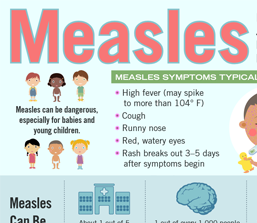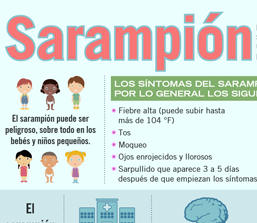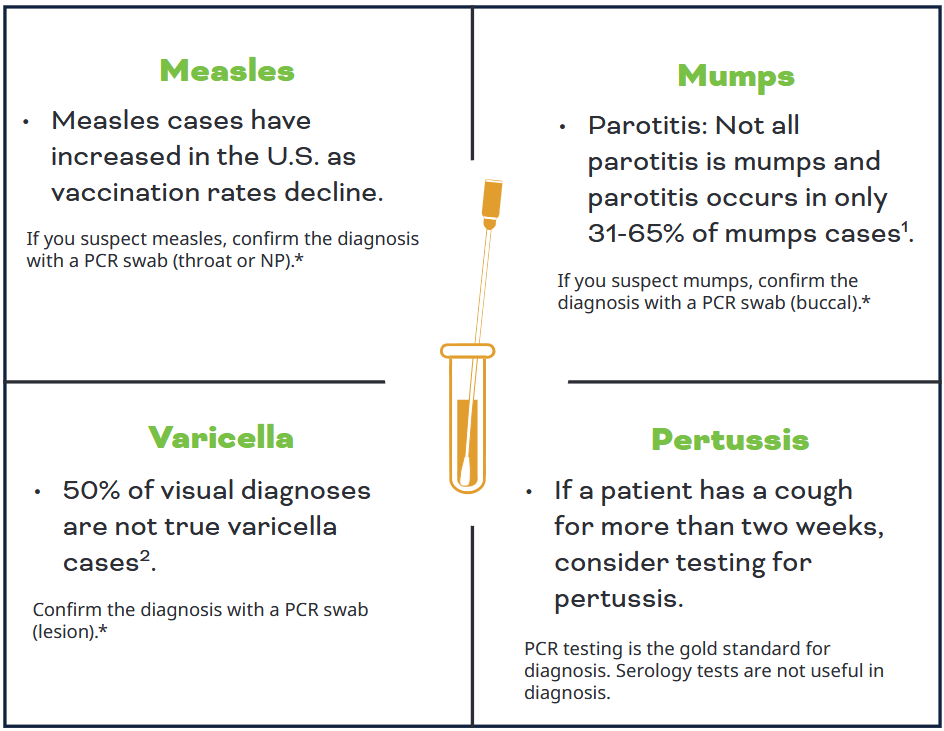Updated: Dec. 3, 2025
What is Measles?
Measles is a highly contagious viral disease spread when an infected person coughs or sneezes.
What are the symptoms?
The initial symptoms of measles include fever, cough and runny nose. In about 2-4 days, these symptoms are followed by a rash that usually lasts 5-6 days. Severe complications can occur with measles, including pneumonia, encephalitis (swelling of the brain), and even death.
Complications caused by the virus can occur in as many as 3 out of 10 cases. Complications are most often seen in children under 5 years of age, adults over the age of 20, pregnant women, and individuals with a weakened immune system.





